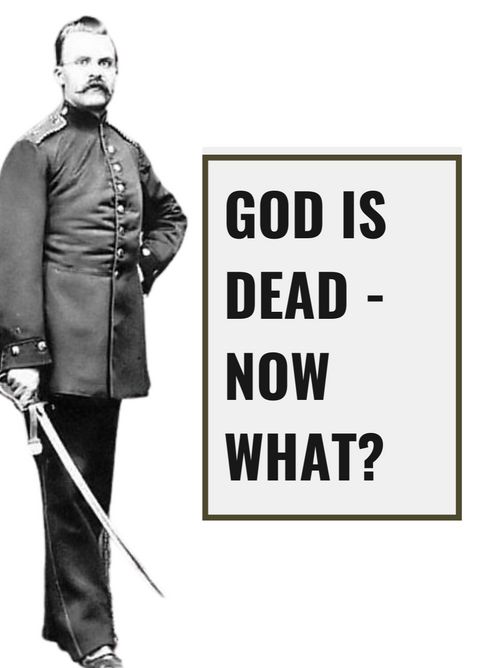Breaking down philosophy's most controversial statement: "God is Dead"
Nov 09, 2021 · 2 mins read
0
Share
"God is dead" is modern philosophy's boldest and the most misunderstood statement. Contemporary atheism takes it to be a triumphant and celebratory announcement, but for Nietzsche it was a great tragedy. Here's a breakdown of what Nietzsche meant by "God is dead"👇
Save
Share
In The Gay Science, Nietzsche announced God's death for the first time. For Nietzsche, God was not a useless burden, a liability, or an irrational filter that distorted our view of reality. Let's look at the metaphors Nietzsche uses for God.
Save
Share
God as sun. The sun holds the planets in their orbit; similarly God oriented us. Unchained from our sun, "are we not plunging continually? Backward, sideward, forward, in all directions?" Our center of gravity is gone - we're hurtling through "an infinite nothing."
Save
Share
God as horizon. Nietzsche asks: "Who gave us the sponge to wipe away the entire horizon?" The horizon keeps sailors on track when at sea. The horizon provides direction and holds the promise of ports to dock at. With the horizon wiped off, where do we look to in stormy seas?
Save
Share
God as illumination. The madman who announces God's death is carrying a lit lantern in broad daylight. Without God, we must now carry our own fragile flames. Illumination is no longer a given.
Save
Share
Who killed God? We did. This task is " too great for us." Nietzsche asks: "What water is there for us to clean ourselves? What festivals of atonement, what sacred games shall we have to invent?"
Save
Share
Our cosmic father is dead, and we are now orphans in a hostile universe. Nietzsche wonders if we must now "become gods" simply to justify what we did.
Save
Share
There are profound implications to God's death; these will unfold over centuries. Faith in God's existence underpinned a lot of what we take for granted - doesn't the idea of human rights and universal equality come from the notion of each created in God's image?
Save
Share
Faith in God was the invisible foundation for much of civilization; all of this is now on shaky ground. We will need new justifications, new fixed horizons, new sources of illumination, and new reliable centers of gravity. Who's creative enough to create all of this from scratch?
Save
Share
Bottom line. Nietzsche: "God is dead. God remains dead." Now who, or what, can do God's job? The tasks done by even the concept of God are too numerous for a simple conceptual replacement. God's death has left a void; to even begin to fill it requires great daring and creativity.
Save
Share
0
